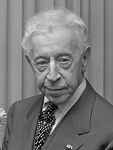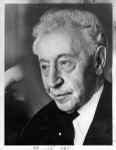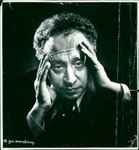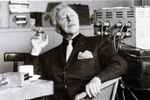MusiQ
Arthur Rubinstein, Boston Symphony Orchestra, Erich Leinsdore - Beethoven Emporer Concerto No 5 In E Flat Op73

Album: Beethoven Emporer Concerto No 5 In E Flat Op73
Table of Contents
Download
Filename: arthur-rubinstein-boston-symphony-orchestra-erich-leinsdore.rar- MP3 size: 13.5 mb
- FLAC size: 156.6 mb
Tracks
| Track | Duration | Preview |
|---|---|---|
| Adagio Un Poco Mosso | ||
| Rondo | ||
| Allegro |
Video
Arthur Rubinstein - Beethoven Piano Concerto No. 5 'Emperor' in E-flat major, II
Arthur Rubinstein - Beethoven Piano Concerto No. 5 'Emperor' in E-flat major, III
Arthur Rubinstein - Beethoven Piano Concerto No. 5 'Emperor' in E-flat major, I
Catalog Numbers
GK 14220Labels
RCA Gold SealListen online
- ascolta in linea
- online anhören
- lyssna på nätet
- online luisteren
- escuchar en línea
- lytte på nettet
- écouter en ligne
- kuunnella verkossa
- ouvir online
Formats
- Cassette
- Album
Credits
| Role | Credit |
|---|---|
| Conductor | Erich Leinsdore |
Notes
(C) 1982 RCA Ltd.About Arthur Rubinstein, Boston Symphony Orchestra, Erich Leinsdore






Polish virtuoso pianist (January 28, 1887, Łódź, Poland - December 20, 1982, Geneva, Switzerland).
(Please use for the composer of "Melody in F" ("Melodía en Fa" / "Mélodie pour Nathalie").
Over his eight-decade career, Rubinstein played thousands of concerts across Europe and the U.S. to South America, Asia, Australia, North Africa and Russia. He initially recorded for HMV/EMI and then began a thirty-six-year association with RCA, making a large quantity of recordings from 1928 to 1978. He is widely regarded as one of the greatest pianists of all time.
Rubinstein began study at the age of three and began studies at the Warsaw Conservatory at the age of eight. The following year he began studies with Heinrich Barth in Berlin. Rubinstein was seven when he made his first public appearance, and he made his European debut in Berlin at age 13. In 1906 he made his American debut with at . During World War I, Rubinstein served as a military interpreter in London and performed there with the violinist . From 1916 to 1918 he visited Spain and South America and created a sensation by introducing works by , , and . During the 1920s Rubinstein developed a reputation as a cosmopolitan socialite, but in 1932 he married Aniela Młynarski and began to seriously analyze his artistry. He renewed his dedication to music, practiced 12 to 16 hours a day, and brought a new discipline to his already brilliant technique. When he returned once again to the United States in 1937 and performed at Carnegie Hall, and was hailed as a genius. Throughout the rest of his career, Rubinstein retained a high artistic reputation and had a huge repertoire that included works by landmark 18th- and 19th-century composers Mozart, Beethoven, and Chopin, as well as important 20th-century figures such as Albéniz, , and . Rubinstein was considered a master interpreter of Chopins work. He moved to the United States during World War II and was granted citizenship in 1946. Rubinstein was known as a witty extrovert and an irrepressible raconteur, but he was also a serious musician whose stage presence enhanced his playing. He made more than 200 recordings. Rubinstein was awarded the United States Medal of Freedom in 1976.
Real Name
- Artur Rubinstein
Name Vars
- A. Rubenstein Orch.
- A. Rubinstein
- A. Rubinšteinas
- A.Rubinstein
- Artur Rubenstein
- Artur Rubinstein
- Arturo Rubenstein
- Arturo Rubinstein
- Athur Rubinstein
- Rubenstein
- Rubinstein
- Rubsintein
- А. Рубинштейн
- А.Рубинштейн
- Артур Рубинштейн
- ¢ëÈ¥üëûëüÓó·å¿¤ó
さすがルビおじさんです。録音も大変素晴らしい。
感激しました。
Absolutely no doubt that this magnificent, all guns blazing performance by Rubinstein is the best you will ever hear. The later recordings with Barenboim don't get anywhere close to the ferocious power of the opening movement, the breathtakingly limpid beauty of the second and the blazing joie-de vivre of the third. This is one of the greatest classical recordings ever made.
In life after life, in age after age, forever.
My spellbound heart has made and remade the necklace of songs,
That you take as a gift, wear round your neck in your many forms,
In life after life, in age after age, forever.
Whenever I hear old chronicles of love, its age-old pain,
Its ancient tale of being apart or together.
As I stare on and on into the past, in the end you emerge,
Clad in the light of a pole-star piercing the darkness of time:
You become an image of what is remembered forever.
You and I have floated here on the stream that brings from the fount.
At the heart of time, love of one for another.
We have played alongside millions of lovers, shared in the same
Shy sweetness of meeting, the same distressful tears of farewell-
Old love but in shapes that renew and renew forever.
Today it is heaped at your feet, it has found its end in you
The love of all man’s days both past and forever:
Universal joy, universal sorrow, universal life.
The memories of all loves merging with this one love of ours –
And the songs of every poet past and forever.
Rabindranath Tagore